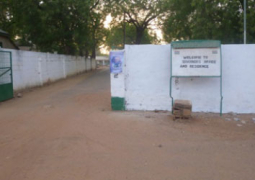We congratulate the President for the hard work and moral boosting to especially farmers of the country, exhibited in various ways such as price reduction of fertilizer and infrastructural buildup for faster movement of people and transportation of produce from one part of the country to another. Thank you very much Mr President!
However one concern highlighted at some point of the tour is the seemingly lackadaisical attitude of the youth of the country towards taking up agricultural work.
The young and energetic youths of our society who make up about 60 per cent of our population in The Gambia are shunning the farming fields.
According to recent UNDP release, despite The Gambia being a youthful nation with the youths constituting 60% of the total population, only 20% of them are employed in the agricultural sector; the majority (60%) work in the service sector.
“This exclusion not only denies the country’s productive capacity for enhancing food security, but it also undermines job opportunities, compounding youth poverty.”
Many hypotheses could be attributed to this undesirable phenomenon, but the underlying factors behind the whole affair are the perceived un-lucrativeness of farming in our part of the world, negative perception of farming as menial job, and the affection to seeking greener pastures.
All these put together have posed a serious threat to agricultural productivity and food security.
Under such circumstances, we could be sure of dire consequences, such as food insecurity, hardship and starvation, dependency, and poverty in the country.
However, there are ways the status quo could be changed.In the first place we must continue to sensitize, and decolonize the minds of our people, especially the youth, as regards agriculture.
It should be widely known that agriculture accounts for the wealth of some of the world’s richest people; that it is a field for noble citizens; that it is the bread basket and fundamental health base of our society and economy, from where we generate substantial foreign exchange to meet our national import bill and other international exchanges.
There should also be more encouragement and incentives placed at the doorstep of farming in this country – incentives that would make it possible for small-holder farmers to grow and produce more food, get wealthy and lead a decent life, worthy of emulation by others.
Even our school curriculum and education drive should jealously promote agriculture and be geared towards catching the hearts and minds of the youths to be wholeheartedly involved in agriculture or farming.
Therefore, to win the war against hunger, we need political commitment, a holistic approach, social participation and family farming.
According to the Food and Agriculture Organisation, throughout the world, family farmers play a crucial socio-economic, environmental and cultural role, which, amid serious challenges, needs to be cherished and strengthened through innovation.
“In The Gambia over 90 per cent of farms are run by families; they provide 60% of the food for the family, care and protect our natural resources,” the FAO statement on World Food Day stated.
“Yet many family farmers, especially subsistence producers, are part of the 70 per cent of the world’s food-insecure population who live in rural areas.”
It is, therefore, vital that we give a rethink to our agricultural and farming trend in this country; more so that facts and statistics have shown that our able-bodied men and women – our youths – are shying away from agriculture.
If we are to accomplish Vision 2016, this trend must be tackled and we should get our people to begin to think that our true existence rests on our ability to “grow what we eat and eat what we grow.”
“Agriculture not only gives riches to a nation, but the only riches she can call her own.”
Samuel Johnson


